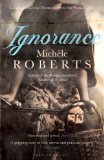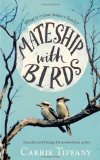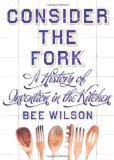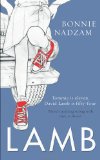 Longlisted for the 2013 Women’s Prize for Fiction
Longlisted for the 2013 Women’s Prize for Fiction
Five words from the blurb: village, Jew, war, society, truth
I have to be honest. When I saw this book on the WPF longlist I groaned. Did the world really need another book about hiding Jewish people during WWII? The subject has been covered so many times, often by people who actually experienced it first hand, that I failed to see how another book could add anything new to the subject. Luckily I was wrong. This book looks at the situation from an interesting new angle and I’m pleased that the WFP brought it to my attention.
Ignorance follows two girls from different backgrounds as they grow up in the French village of Ste Madeleine. Marie-Angèle’s father is a grocer, so when WWII breaks out she is one of the lucky ones. She has access to food and when she becomes involved with a man who does deals on the black-market her position in society becomes even more inflated. On the other hand, Jeanne’s mother was born a Jew and her family are desperately poor. Jeanne must deal with all the issues that involve being at the bottom of the social pile, problems compounded when Jews become persecuted.
This book was easy to read and engaging, but I also loved the way it worked on multiple levels. Themes of ignorance ran through the book, questioning whether or not it is better to know the truth or live in blissful ignorance of it.
I also liked the way the book looked at the structure of society. It didn’t concentrate on the horrors of war (in fact these were barely mentioned) instead the book examined how different groups of people were affected by the social changes brought on by war.
Some of the peripheral characters were a bit vague, but the two girls were well drawn and I thought the way different chapters were written from their opposing view points worked very well. The writing was particularly evocative and I especially loved the strong use of smells throughout the book:
Behind me the bakery door opened, letting out gold light, the smell of warm yeast. Soon, people would start arriving to buy their morning loaves. Take them home to their families. Eat breakfast with their mothers, just as they did every day. I wanted to dive into that yeasty scent, that shop full of loaves warm as mothers.
I’d be happy to see this book on the WFP shortlist and recommend it to anyone who’d like to read an interesting story with literary depth.












